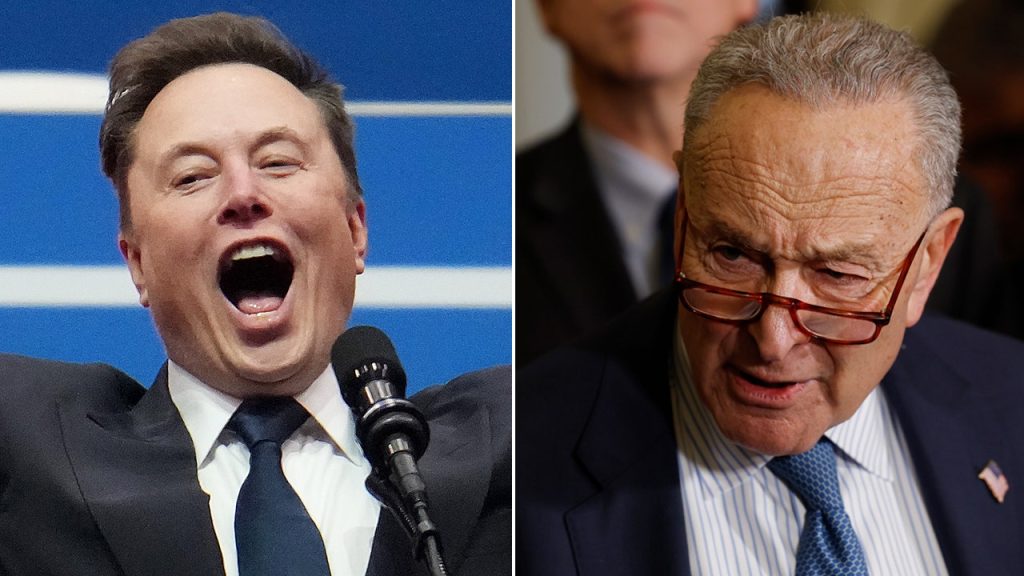The establishment of the Department of Government Efficiency (DOGE) by President Donald Trump, with Elon Musk at its helm, has sparked a heated controversy, drawing sharp criticism from prominent figures like Senate Minority Leader Chuck Schumer. Schumer, echoing concerns voiced during a press conference, accused DOGE of being an “unelected shadow government” engaged in a “hostile takeover of the federal government.” He emphasized that DOGE lacks legal authority to make spending decisions, shut down programs, or disregard federal law. Schumer’s statements reflect a broader anxiety about the potential overreach of DOGE, with critics questioning its legitimacy and power. He called for congressional action to “restore the rule of law” and prevent DOGE’s actions from continuing unchecked. This confrontation underscores a fundamental disagreement over the role and authority of DOGE within the government structure.
Elon Musk, however, has framed the outcry as evidence of DOGE’s effectiveness. Responding directly to Schumer’s criticism, Musk characterized the reactions as “hysterical” and indicative that DOGE is “doing work that really matters.” He portrayed DOGE’s mission as a “one-time opportunity” for the American people to combat bureaucracy and restore democratic governance. Musk’s rhetoric suggests a belief that DOGE is fulfilling a crucial need to streamline government operations and empower citizens against entrenched bureaucratic interests. He called for public support, casting DOGE’s efforts as a “revolution of the people” against bureaucratic rule, emphasizing the urgency of the moment and the need for decisive action.
Musk’s depiction of DOGE as a “wood chipper for bureaucracy” provides a vivid image of its intended function: to dismantle unnecessary and inefficient government processes. This metaphor underscores his commitment to radical reform and efficiency within the government. Meanwhile, Schumer’s concerns extend to the potential misuse of federal payment systems by DOGE. He expressed alarm over reports of DOGE’s access to these systems and called for the Treasury Secretary to revoke this access immediately. Should the Treasury Secretary fail to act, Schumer vowed to collaborate with Rep. Jeffries on legislation to prevent “unlawful meddling” in Treasury payment systems, highlighting the need to protect Social Security, Medicare, and tax refund payments from potential interference.
This clash between Schumer and Musk underscores the deep divisions regarding DOGE’s legitimacy and operations. Schumer’s apprehension regarding DOGE’s access to the Treasury’s payment systems further complicates the narrative, raising concerns about potential overreach and misuse of power. Musk, in response to these allegations, denied any interest in private financial data and emphasized DOGE’s focus on identifying potential fraud and wasteful spending. He characterized the critical voices as “corrupt politicians,” implying their opposition stemmed from self-interest rather than genuine concern for proper governance.
The controversy surrounding DOGE exemplifies a broader debate about the appropriate role of government and the balance between efficiency and accountability. While Musk champions DOGE as a necessary force to combat bureaucratic inefficiencies, his critics express concerns about its potential to undermine democratic processes and exceed its authority. The contrasting narratives underscore the need for greater clarity regarding DOGE’s mandate, powers, and oversight mechanisms to ensure responsible and effective governance. The dispute reflects fundamental disagreements over the role of government, the balance between efficiency and accountability, and the potential risks of unchecked power.
Looking ahead, the ongoing debate over DOGE will likely center on its legal authority, operational transparency, and impact on existing government structures. Congressional scrutiny and potential legislative action will play a crucial role in shaping DOGE’s future and defining its relationship with other government agencies. The effectiveness of DOGE’s efforts to combat bureaucratic waste and improve government efficiency, alongside its ability to address concerns about transparency and accountability, will ultimately determine its long-term success and legacy. The conflicting perspectives and high stakes involved suggest that the controversy surrounding DOGE is far from resolved and will continue to shape the discourse on government reform and efficiency.

